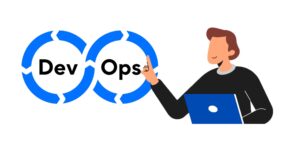
The information technology landscape is in a state of perpetual flux. New technologies emerge, reshape industries, and redefine the skills required for success. For MCA (Master of Computer Applications) graduates, this dynamism presents both challenges and immense opportunities.
By equipping themselves with the knowledge and skills relevant to emerging tech trends, MCA graduates can secure fulfilling careers at the forefront of the IT revolution. Here, we delve into five of the most promising emerging tech trends that hold immense potential for MCA careers:
1. Robotic Process Automation (RPA):

Robotic Process Automation (RPA) is rapidly transforming the way businesses operate. RPA involves using software robots, or “bots,” to automate repetitive, rule-based tasks traditionally performed by humans. These tasks can encompass data entry, form filling, report generation, and even customer service interactions.
RPA bots seamlessly integrate with existing IT systems, mimicking human actions and streamlining workflows.
MCA graduates possess a valuable skillset that makes them well-suited for RPA careers. Their curriculum often includes programming languages like Python or Java, which are widely used in RPA development tools.
Additionally, MCA graduates develop a strong understanding of business processes, allowing them to identify suitable tasks for automation. Their analytical skills are crucial for designing and deploying effective RPA solutions, ensuring these automated processes function seamlessly and deliver the desired outcomes.
The predictions about the future of IT state that the global RPA market is expected to reach a staggering USD 26.9 billion by 2027. This phenomenal growth signifies a burgeoning demand for skilled RPA professionals. By using their programming skills, business process understanding, and analytical abilities, MCA graduates can establish themselves in this high-demand field.
Here’s a roadmap on how to navigate MCA careers in this field:
- Upskilling for Success: Several online and offline courses provide comprehensive training on RPA principles, tools, and methodologies.
- Demonstrate Your Capabilities: Develop a personal project that showcases your understanding of RPA. This could involve automating a personal task or a simple workflow you encounter in your daily life. Building a portfolio that demonstrates your ability to apply RPA principles in a practical setting can significantly enhance your candidacy.
- Network and Connect: Attending industry events and conferences focused on RPA allows you to connect with professionals in the field. This can open doors to potential internship or job opportunities and keep you updated on the latest advancements in RPA technology.
2. Quantum Computing (QC):

The future of IT will certainly be driven by the groundbreaking potential of Quantum Computing (QC). Traditional computers rely on bits (0s and 1s) to store and process information. QC, however, harnesses the principles of quantum mechanics to utilize qubits. These qubits can exist in a superposition of states (both 0 and 1 simultaneously), allowing for a massive leap in processing power for specific problems.
Imagine a computer that can solve problems in minutes that would take traditional computers years or even centuries. This is the promise of Quantum Computing.
While still in its early stages, QC technology holds immense potential for various industries, including finance, materials science, and drug discovery. MCA graduates, with their strong foundation in computer science principles, are well-positioned to contribute to the exciting future of this emerging field.
To carve a path in the domain of Quantum Computing, you should:
- Deepen Your Theoretical Knowledge: Courses in quantum mechanics, quantum algorithms, and quantum information theory will provide a strong foundation for understanding and working with QC technology.
Several online resources and universities now offer specialized courses in QC, making this knowledge more accessible than ever before.
- Focus on Programming Languages: Familiarity with high-performance computing languages like C++ and Python will be beneficial for developing quantum algorithms and simulations. These languages are often used in QC software development tools.
- Stay Updated in a Rapidly Evolving Field: The field of QC is developing rapidly. Actively following research publications, attending conferences, and participating in online communities focused on QC will keep you abreast of the latest advancements and ensure you possess the most relevant skillset for future opportunities.
- Consider Higher Studies: Pursuing a PhD in a related field like quantum computing or quantum information science can open doors to research and development roles in leading institutions and companies at the forefront of QC technology.
3. DevOps:

DevOps stands for Development and Operations and it emphasizes breaking down silos between development and IT operations teams. Traditionally, these teams often function in isolation, leading to delays, inefficiencies, and communication gaps. DevOps fosters a culture of collaboration and continuous improvement, allowing for faster release cycles, improved software quality, and a more efficient overall development process.
MCA graduates, with their well-rounded understanding of both development and application management principles, are ideal candidates for DevOps careers. Their programming skills are crucial for scripting automation tasks and interacting with DevOps tools. Additionally, their knowledge of database systems and their management is essential for ensuring data integrity and smooth application functionality within DevOps workflows.
Also, a strong understanding of networking concepts is necessary for managing infrastructure and ensuring application availability across various platforms. Finally, problem-solving abilities are paramount in the dynamic world of DevOps. DevOps professionals must be adept at troubleshooting issues, identifying bottlenecks, and finding solutions to ensure smooth software delivery and ongoing application maintenance.
If you are interested in MCA careers related to DevOps, you should:
- Upskilling for DevOps Proficiency: Several online and offline courses provide comprehensive training on DevOps principles, tools, and methodologies.
Consider industry-recognized certifications like Certified Kubernetes Administrator (CKA) or AWS Certified DevOps Engineer – Professional to further enhance your profile and demonstrate your expertise to potential employers.
- Showcase Your Skills through Personal Projects: Building a personal project that showcases your DevOps skills is a great way to demonstrate your capabilities to potential employers. This could involve automating a deployment process, setting up a CI/CD pipeline (Continuous Integration and Continuous Delivery), or configuring infrastructure management tools using code (Infrastructure as Code).
A strong portfolio that highlights your practical understanding of DevOps principles will make you a more competitive candidate.
- Embrace Open Source Contribution: Contributing to open-source DevOps projects allows you to gain practical experience, build a strong network within the DevOps community, and showcase your coding abilities to potential employers.
Many open-source DevOps projects welcome contributions from enthusiastic developers, providing valuable learning opportunities and a platform to collaborate with experienced professionals in the field.
The global DevOps market is expected to reach a staggering USD 21.2 billion by 2027. In India, with its booming IT sector and increasing adoption of agile development methodologies, the need for DevOps professionals is on the rise.
4. Extended Reality (XR)

The boundaries between the physical and digital worlds are blurring, and Extended Reality (XR) is at the forefront of this exciting transformation. XR encompasses a range of technologies, including Augmented Reality (AR), Virtual Reality (VR), and Mixed Reality (MR) that create immersive experiences that blend the real and virtual worlds.
Here’s a breakdown of the key components of XR:
- Augmented Reality (AR): AR overlays digital elements onto the physical world. Think of Pokemon Go, where virtual creatures appear in your real-world environment through your smartphone camera.
AR applications have the potential to revolutionize various sectors, from education and training to manufacturing and retail.
- Virtual Reality (VR): VR creates a completely immersive, computer-generated environment. VR headsets transport users to entirely new worlds, from exploring the ocean depths to scaling Mount Everest. VR is finding increasing use in gaming, entertainment, and even corporate training simulations.
- Mixed Reality (MR): MR merges the real and virtual worlds, allowing for interaction between physical and digital objects. Imagine a car mechanic using MR glasses to see repair instructions superimposed on a real engine, or an architect using MR tools to visualize a building design within a physical space.
MR applications hold immense potential for various industries, including engineering, design, and healthcare.
The XR field offers diverse career paths for MCA graduates. You can leverage your skills in this domain through:
- Game and Marketing Content Development: XR is revolutionizing the gaming and marketing industry, with the rise of VR and AR-powered games and promotional material. Your programming expertise can be instrumental in developing captivating AR/VR games or marketing content, contributing to the creation of immersive gaming and promotional marketing experiences.
- Application Development: XR applications are finding increasing use in various sectors, such as education, healthcare, and retail. You can develop applications for training simulations, product visualization, or interactive learning experiences that utilize AR, VR, or MR technologies.
- Software Development Tools: As XR technology evolves, specialized development tools are needed to create and manage XR applications and content.
Your programming skills can be valuable in contributing to the development of these specialized tools, which may involve creating engines for rendering XR experiences, designing tools for 3D content creation, or developing user interaction frameworks for XR applications.
To excel in XR careers, you should:
- Develop a Strong Programming Foundation: A strong foundation in programming languages like C++, C#, and Unity Script is crucial for developing XR applications. These languages are widely used in XR development tools and game engines.
- Learn 3D Development Concepts: XR experiences often involve 3D graphics and environments. Familiarise yourself with 3D modelling tools like Maya or Blender, and explore game engines like Unity or Unreal Engine that offer robust features for XR development.
- Stay Updated on Emerging Technologies: The XR landscape is rapidly evolving. Actively follow industry trends, attend conferences, and participate in online communities focused on XR to stay abreast of the latest advancements and ensure your skillset remains relevant.
The global XR market is projected to reach a staggering USD 440.6 billion by 2027.
5. AI Product Management

Artificial Intelligence (AI) is rapidly transforming industries and user experiences. AI algorithms are being used to power everything from facial recognition software to self-driving cars. At the heart of this revolution lies AI Product Management, a field that requires a unique blend of technical knowledge and business acumen.
AI Product Managers are responsible for the entire lifecycle of AI products, from ideation and development to launch and ongoing management. They work closely with engineers, data scientists, and other stakeholders to ensure that AI products are not only technically sound but also meet user needs and deliver real-world value.
MCA graduates have a strong foundation in computer science provides them with a deep understanding of how AI algorithms work. Additionally, their curriculum often includes courses in database management, which is crucial for handling the vast amount of data required to train AI models. They also have an understanding of software development principles allows them to communicate effectively with engineers and developers working on AI products.
While an MCA degree provides a solid foundation, several steps can enhance your profile for a career in AI Product Management:
- Bridge the Knowledge Gap: Take online courses on AI and machine learning to gain a deeper understanding of these technologies. Several platforms offer introductory and advanced courses on AI concepts, algorithms, and applications.
- Develop Data Analysis Skills: Data analysis is crucial for AI Product Managers. Courses in data science or business intelligence can equip you with the skills necessary to analyse data, identify trends, and extract insights that can be used to inform product development decisions.
- Build a Project Portfolio: Develop a project portfolio that showcases your ability to solve real-world challenges using AI principles. This could involve building a simple AI-powered application or participating in hackathons focused on AI development. Demonstrating your practical understanding of AI through projects can significantly enhance your candidacy.
The global market for AI is projected to reach a staggering USD 1,798.4 billion by 2025. MCA graduates who embrace continuous learning can position themselves for exciting and rewarding careers at the forefront of AI innovation.
Conclusion
The IT landscape is constantly evolving, and emerging tech trends present both challenges and opportunities. MCA graduates hold a significant advantage with their strong foundation in computer science principles.
By embracing these trends, continuously honing their skills, and specializing in areas of interest, MCA graduates can thrive in this dynamic environment and carve successful careers at the cutting edge of the future of IT.




